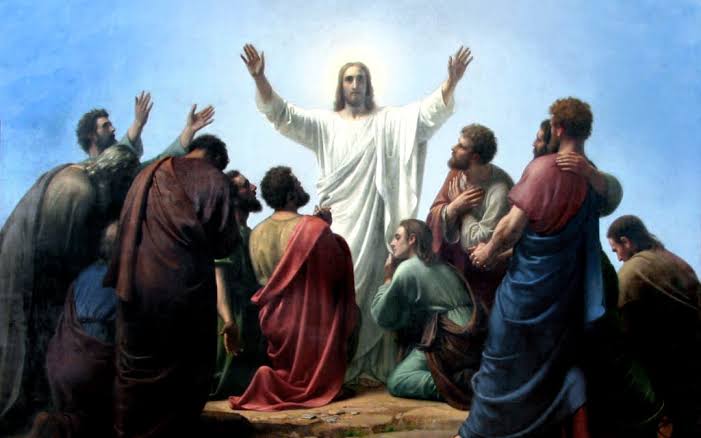
The events of the final week of Jesus’s earthly ministry, often referred to as the Passion Week, represent the culmination of his mission. This period begins with two dramatic and highly symbolic public acts: the Triumphal Entry into Jerusalem and the Cleansing of the Temple. These are not isolated incidents but intertwined prophetic declarations of Jesus’s identity, authority, and the nature of his kingdom.
The Triumphal Entry – A King’s Arrival
The Triumphal Entry is meticulously recorded in all four Gospels, with Matthew, Mark, and Luke providing detailed, complementary narratives. It serves as Jesus’s formal, public presentation to Jerusalem as its long-awaited Messiah, yet in a manner that subverted popular expectations.
1. The Prophetic Preparation (Matthew 21:1-7; Mark 11:1-7; Luke 19:29-35)
The narrative begins as Jesus and his disciples approach Jerusalem, nearing the villages of Bethphage and Bethany at the Mount of Olives. This location is geographically and theologically significant; the Mount of Olives was associated with messianic expectation, as the prophet Zechariah foretold the Lord would stand there on the Day of the Lord (Zechariah 14:4).
From this vantage point, Jesus demonstrates his divine authority and foreknowledge. He dispatches two disciples with specific instructions: “Go to the village ahead of you, and as you enter it, you will find a colt tied there, which no one has ever ridden. Untie it and bring it here. If anyone asks you, ‘Why are you untying it?’ say, ‘The Lord needs it’” (Luke 19:30-31). The execution of this command proceeds exactly as predicted, confirming Jesus’s sovereign control over the situation.
Matthew’s account (21:4-5) explicitly connects this act to Old Testament prophecy, stating, “This took place to fulfill what was spoken through the prophet: ‘Say to Daughter Zion, “See, your king comes to you, gentle and riding on a donkey, and on a colt, the foal of a donkey”’” (quoting Zechariah 9:9). The choice of a donkey is profoundly symbolic. While a conquering general or earthly king would enter a city on a warhorse, a symbol of power and military might, the donkey was a symbol of peace, humility, and royalty in a domestic context. By choosing this mount, Jesus deliberately defines his kingship not in terms of political revolution but of humble, divine service.
2. The Royal Procession (Matthew 21:8-9; Mark 11:8-10; Luke 19:36-38)
As Jesus begins his descent into the city, the crowd of followers and Passover pilgrims erupts in a spontaneous act of royal homage. They spread their cloaks on the road, an ancient custom reserved for honoring kings (see 2 Kings 9:13). Others cut branches from the trees and spread them on the path.
The air fills with messianic acclamations drawn directly from the Psalms. The people shout: “Hosanna to the Son of David! Blessed is he who comes in the name of the Lord! Hosanna in the highest heaven!” (Matthew 21:9).
- “Hosanna”: Originally a Hebrew plea meaning “Save, please!” (from Psalm 118:25), by this time it had evolved into an exuberant shout of praise and welcome.
- “Son of David”: This was an unambiguous and popular title for the Messiah, acknowledging Jesus’s lineage and his claim to the throne of Israel’s greatest king.
- “Blessed is he who comes in the name of the Lord”: This quote from Psalm 118:26 was part of the Hallel psalms sung during major Jewish festivals, particularly Passover. It was a liturgical welcome for pilgrims, but in this context, it takes on a messianic fervor, directed at Jesus as the ultimate pilgrim and fulfillment of God’s promises.
3. The City’s Reaction and the King’s Lament (Matthew 21:10-11; Luke 19:39-44)
The procession sends a shockwave through the capital. Matthew records that “the whole city was in turmoil” (21:10), with people asking, “Who is this?” The answer from the crowd identifies him as “Jesus, the prophet from Nazareth in Galilee,” linking him to a specific place but perhaps falling short of the full messianic identity on display.
Luke’s account adds two critical details. First, the Pharisees, representing the threatened religious establishment, demand that Jesus rebuke his disciples for their blasphemous praise. Jesus’s reply is a stark affirmation of the cosmic significance of the moment: “I tell you,” he replied, “if they keep quiet, the stones will cry out” (Luke 19:40). This declares that creation itself recognizes its King, and his entry is an event of such magnitude that it cannot be silenced.
Second, Luke provides a moment of profound pathos. As Jesus overlooks the city, he weeps, lamenting its spiritual blindness and foretelling its destruction: “If you, even you, had only known on this day what would bring you peace—but now it is hidden from your eyes… They will not leave one stone on another, because you did not recognize the time of God’s coming to you” (Luke 19:42-44). The triumphant king is also a grieving prophet, heartbroken by the rejection he knows is to come.
The Cleansing of the Temple – A House of Prayer
Following his kingly entry, Jesus immediately proceeds to the Temple, the heart of Jewish religious and national life. His actions there constitute a direct and authoritative challenge to the corrupt system that had overtaken his “Father’s house.”
4. Confrontation in the Father’s House (Matthew 21:12-13)
Upon entering the temple courts, Jesus finds not a serene place of worship but a bustling, noisy marketplace. The Court of the Gentiles, the outer area designated for non-Jews to come and pray, had been converted into a commercial zone. Here, money changers exchanged Roman currency (which bore the image of the emperor and was considered idolatrous) for the special Tyrian shekel required for the temple tax. Others sold doves, lambs, and oxen, pre-approved for sacrifice.
While these services provided a convenience for pilgrims, they were notoriously exploitative, with exorbitant exchange rates and prices. More significantly, this commerce was a physical and spiritual barrier, preventing Gentiles from accessing the one area of the Temple dedicated to them. It symbolized the perversion of the Temple’s purpose from a house of international worship to a center of exclusive and profitable nationalism.
Jesus responds with decisive, prophetic action. He drives out the merchants, overturns the tables of the money changers, and scatters the benches of those selling doves. This was not an uncontrolled fit of rage but a deliberate act of divine judgment and reclamation. His authority is grounded in Scripture, as he declares, “It is written, ‘My house will be called a house of prayer,’ but you are making it a ‘den of robbers’” (Matthew 21:13).
This powerful statement combines two Old Testament prophecies:
- Isaiah 56:7: “My house will be called a house of prayer for all nations.” By quoting this, Jesus condemns the Temple authorities for excluding the Gentiles and betraying the universal scope of God’s redemptive plan.
- Jeremiah 7:11: In this passage, Jeremiah condemns the people of his day for treating the Temple as a “den of robbers”—a safe house where they could hide after engaging in social injustice and idolatry. Jesus invokes this to accuse the Temple leadership of turning a sacred space into a hub for financial exploitation and spiritual hypocrisy.
5. Restoration and Opposition (Matthew 21:14-17)
Jesus does not simply clear the Temple from corruption; he restores it to its true purpose. Matthew records that immediately after the cleansing, “the blind and the lame came to him at the temple, and he healed them” (21:14). Where commerce once stood, compassion and restoration now flow. This demonstrates the nature of his kingdom: a place of healing, inclusion, and grace.
This combination of authoritative cleansing and miraculous healing enrages the chief priests and teachers of the law. They are indignant not only at his actions but also at the sound of children in the temple courts continuing the praise from the entry: “Hosanna to the Son of David!” They challenge Jesus, “Do you hear what these children are saying?” (21:16).
Once again, Jesus defends his actions and the praise he receives with Scripture, quoting Psalm 8:2: “From the lips of children and infants you, Lord, have called forth your praise.” By applying this Psalm to himself, he implicitly claims a divine identity, asserting that God himself has ordained this praise from the mouths of the innocent, silencing the sophisticated objections of the corrupt elite.
Having made his definitive statement, Jesus leaves the city for Bethany, leaving the authorities to grapple with the implications of his royal arrival and his sovereign cleansing of their sacred domain. These two events, occurring in swift succession, undeniably set the stage for the final confrontation that would lead to the cross. They were a public declaration that the King had arrived, and he had come to judge, reclaim, and restore his house and his people.
References:
- The Holy Bible, New International Version (NIV). (2011). Biblica, Inc.
- Keener, C. S. (2009). The Gospel of Matthew: A Socio-Rhetorical Commentary. Wm. B. Eerdmans Publishing.
- France, R. T. (2002). The Gospel of Mark: A Commentary on the Greek Text (New International Greek Testament Commentary). Wm. B. Eerdmans Publishing.
- Wright, N. T. (1996). Jesus and the Victory of God. Fortress Press.
- Bock, D. L. (1996). Luke 9:51-24:53 (Baker Exegetical Commentary on the New Testament). Baker Academic.






